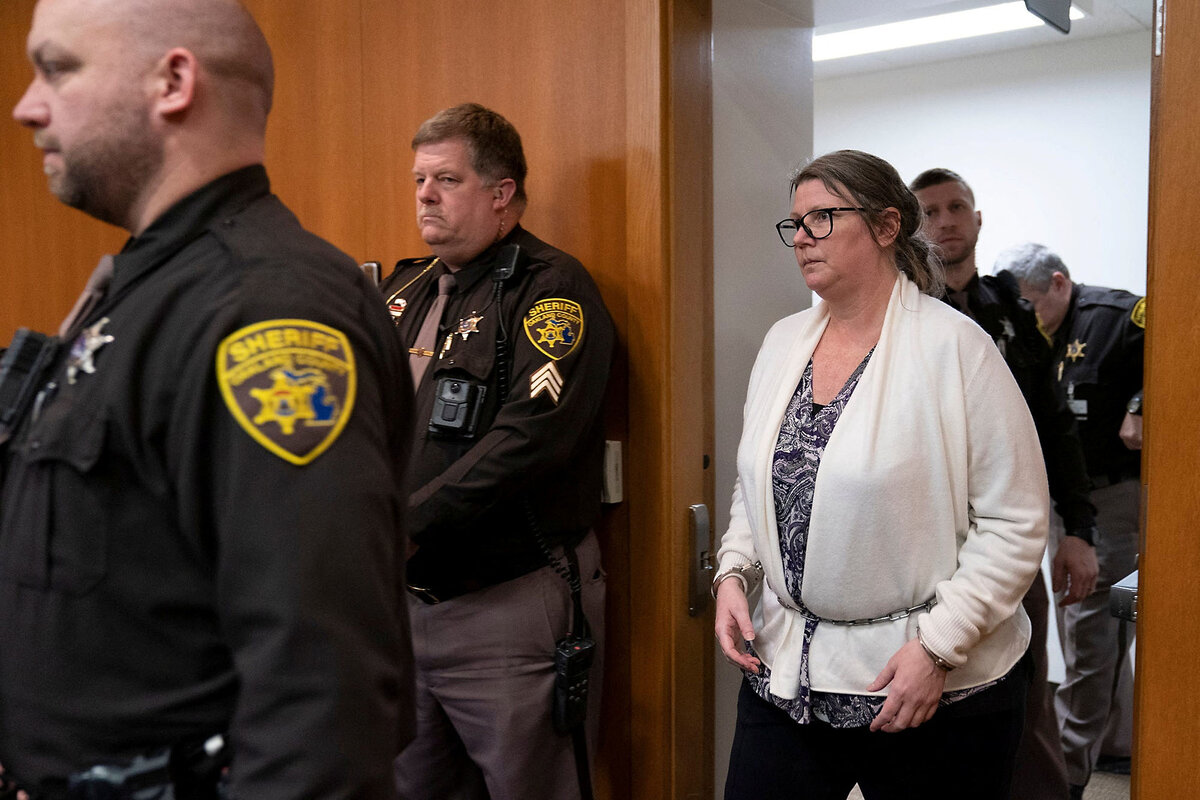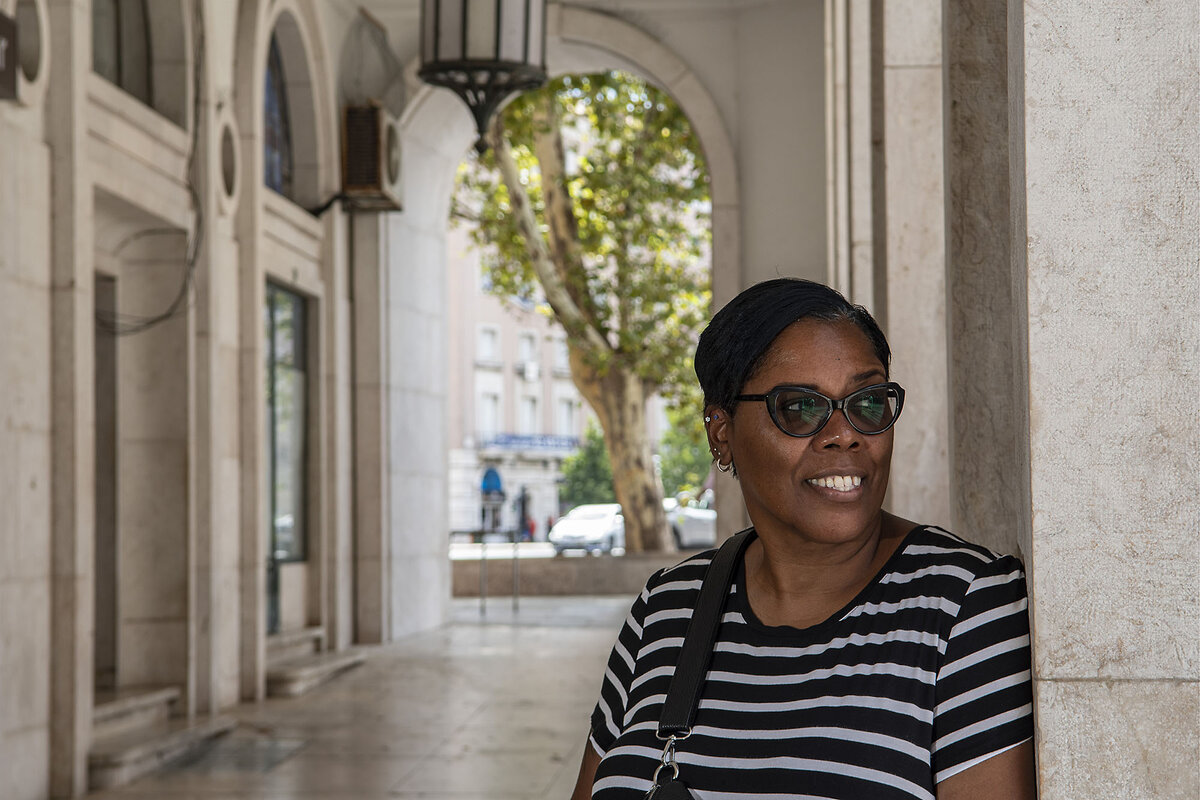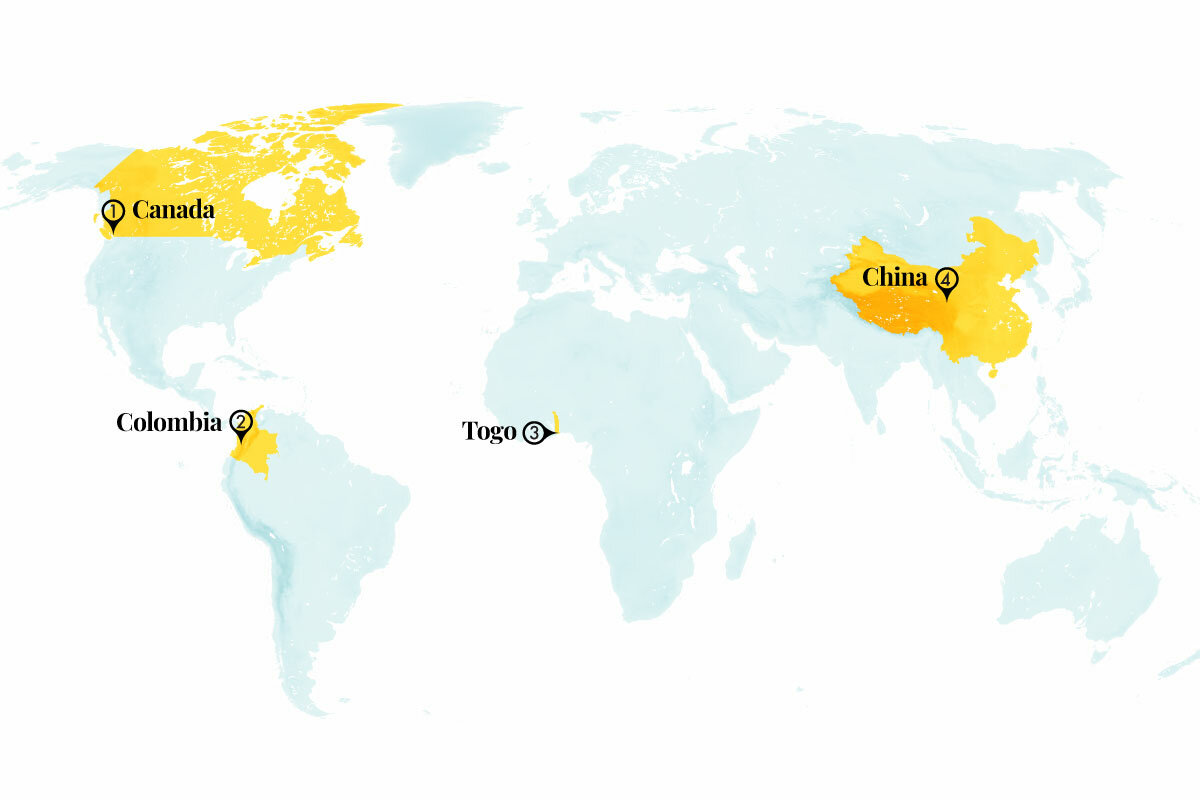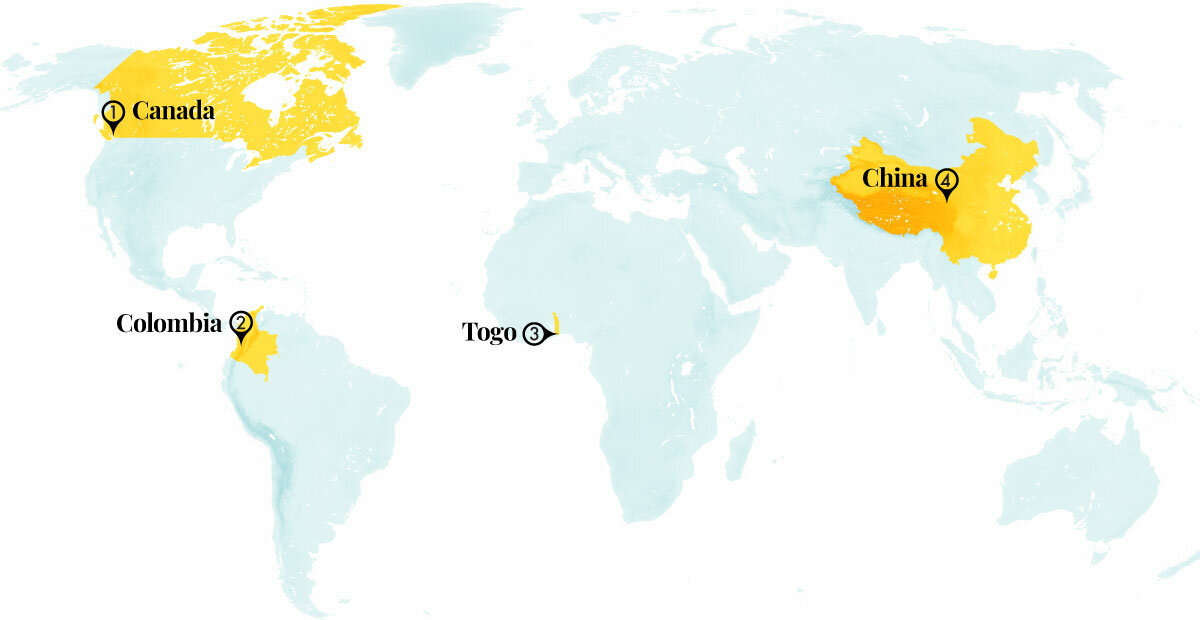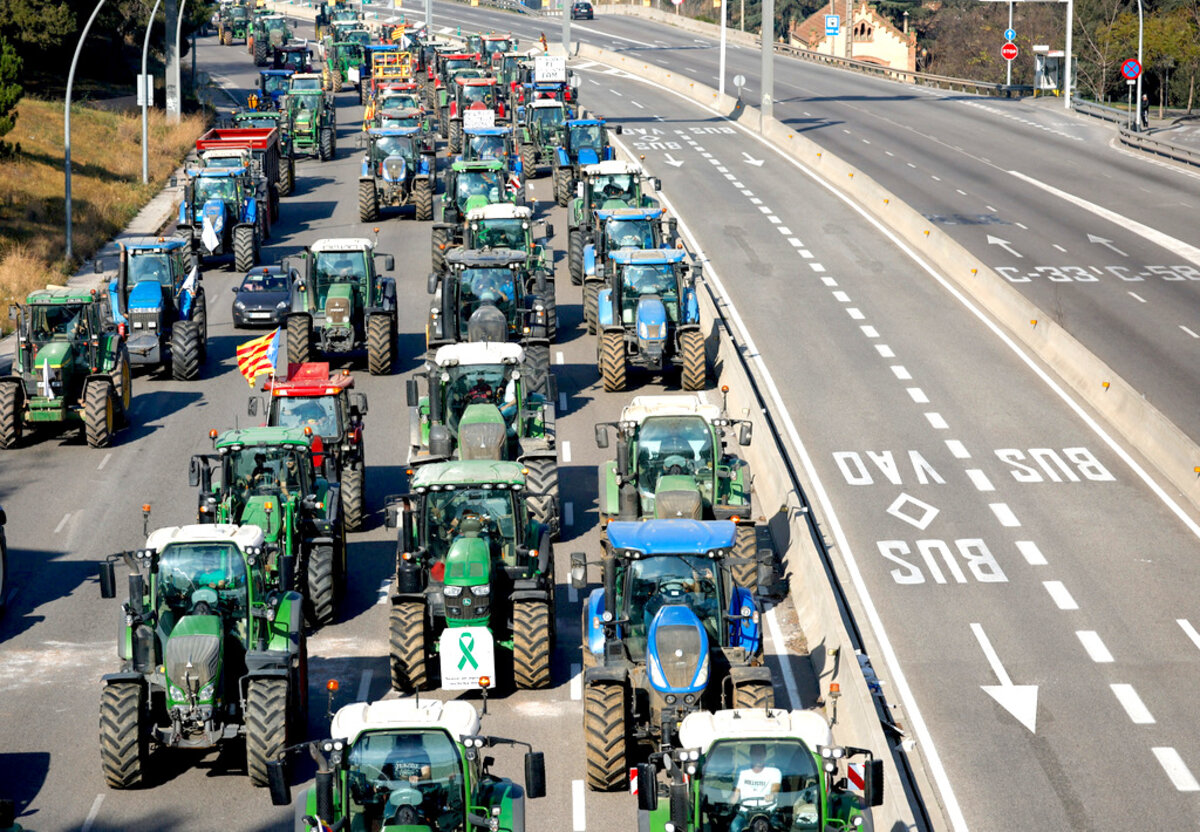The Supreme Court issues landmark decisions every term. But they normally don’t involve obscure sections of the Constitution, a presidential election, and a need for speed. Trump v. Anderson is going to test the justices’ ability to work as a court.

Why is Christian Science in our name?
Our name is about honesty. The Monitor is owned by The Christian Science Church, and we’ve always been transparent about that.
The Church publishes the Monitor because it sees good journalism as vital to progress in the world. Since 1908, we’ve aimed “to injure no man, but to bless all mankind,” as our founder, Mary Baker Eddy, put it.
Here, you’ll find award-winning journalism not driven by commercial influences – a news organization that takes seriously its mission to uplift the world by seeking solutions and finding reasons for credible hope.
Explore values journalism About usMonitor Daily Podcast
- Follow us:
- Apple Podcasts
- Spotify
- RSS Feed
- Download
 Mark Sappenfield
Mark Sappenfield
As an American living in Europe, I was drawn to Stephanie Hanes’ story about Americans living in Portugal. One line jumped out: “the appeal of a culture with less focus on consumption and ‘productivity,’ and more freedom from stressors of racism, gun violence, and toxic political divisions.”
Europe is no paradise. From immigration to the economy, its problems are in some ways worse than those in the United States. But the quote above rings true in Berlin, too. There are worries and disappointments here, but not division like we see in the U.S.
The good news? The solution starts with simple kindnesses. Just read Stephanie’s story. Alfreda Chandler will tell you.
Already a subscriber? Log in
Help fund Monitor journalism for $11/ month
Monitor journalism changes lives because we open that too-small box that most people think they live in. We believe news can and should expand a sense of identity and possibility beyond narrow conventional expectations.
Our work isn't possible without your support.
Today’s stories
And why we wrote them
( 6 min. read )
Today’s news briefs
• Hamas cease-fire proposal: Hamas proposes quieting the guns in Gaza for 4 1/2 months, during which all Oct. 7 hostages would go free, Israel would withdraw, and an agreement to end the war would be reached. Israeli Prime Minister Benjamin Netanyahu has rejected the proposals, calling them “delusional.”
• Bid to impeach border official fails: The U.S. House of Representatives votes against impeaching Homeland Security Secretary Alejandro Mayorkas, President Joe Biden’s top border official.
• “None” wins Nevada primary: The top vote-getter in Tuesday’s Republican presidential primary in Nevada was “none of these candidates.” Donald Trump did not compete in the primary and so was not on the ballot.
• Zimbabwe scraps death penalty: Zimbabwe’s Cabinet agrees to abolish a death penalty law inherited from British colonial rule, choosing instead to impose lengthy prison sentences for the worst offenses.
( 4 min. read )
Election-year partisanship often makes it hard to pass major legislation, but a U.S. Senate vote today stood out. After months of pursuing one of their top priorities, Republicans backtracked to preserve a campaign weapon against Democrats.
( 4 min. read )
For the first time, a U.S. jury found the parent of a school shooter criminally responsible for the murders their child committed. The Michigan verdict, if upheld on appeal, could mark an important shift in how parental culpability is viewed.
( 4 min. read )
To hear it from Tucker Carlson or his Russian fans, his soon-to-be-aired interview with Russian President Vladimir Putin is an exercise in journalistic parity. But both Mr. Carlson and the Kremlin are pushing agendas.
( 6 min. read )
Portugal is gaining popularity with U.S. citizens looking to move abroad. Reasons include the expected, like weather and the cost of living, as well as ones that hint at people’s deeper needs when trying to build a good life.
Points of Progress
( 5 min. read )
In our progress roundup, both physical movement and mental exercises are helping people heal and flourish. In Colombia, salsa dancers are coping with gender violence. And around the world, children are cultivating an inner strength.
The Monitor's View
( 2 min. read )
When the British prime minister, Rishi Sunak, said in December at a climate summit that “climate politics is close to [a] breaking point,” he probably didn’t know how close. Within weeks, farmers descended on capitals across Europe – the world’s leader in efforts at decarbonization – largely demanding greater fairness and transparency in policies aimed at agriculture. In many cities, the pitchfork rebellions halted street commerce.
The impact of the protests on European leaders was both swift and startling in showing how to restore climate politics to a healthy state.
On Jan. 25, the European Commission opened its first “strategic dialogue” with the farming and food industry to shape a “shared vision.” Then on Feb. 6, the commission, which is the executive arm of the European Union, reduced the goal of cutting agricultural emissions as well as government subsidies for fossil fuels.
While those latter steps seem like a setback for climate action, they came with a shift in tone that may herald a more effective approach toward slowing global warming. Notably, the commission president, Ursula von der Leyen, acknowledged that many farmers “feel pushed into a corner.”
“It is true. Issues have escalated in recent years. Our farmers deserve to be listened to,” she said in a Feb. 1 speech. To avoid a “blame game,” farmers must now be in "the driving seat” on finding climate solutions.
They need, she said, to see profits as they adopt nature-enhancing measures. “Perhaps we have not made that case convincingly,” she added. “We should place more trust in them.”
Then Ms. von der Leyen hit on what can most heal the world’s broken politics over climate: “We need to move beyond a polarised debate and to create trust. Trust is the crucial basis for viable solutions.”
Her humility to listen, to deliberate more widely, and to be held accountable for failed policy may help reset trust in Europe’s progress toward a green future. She said success on climate action requires a bottom-up approach or, as she put it, “a willingness to listen to each other.”
With elections for the European Parliament in June, the commission president hopes that the coming months of political debate on climate will be “an important opportunity to secure public engagement.” She can thank Europe’s farmers for that, just as she thanked them for the hard work of producing “the quality food we eat.”
A Christian Science Perspective
Each weekday, the Monitor includes one clearly labeled religious article offering spiritual insight on contemporary issues, including the news. The publication – in its various forms – is produced for anyone who cares about the progress of the human endeavor around the world and seeks news reported with compassion, intelligence, and an essentially constructive lens. For many, that caring has religious roots. For many, it does not. The Monitor has always embraced both audiences. The Monitor is owned by a church – The First Church of Christ, Scientist, in Boston – whose founder was concerned with both the state of the world and the quality of available news.
( 3 min. read )
If obstacles are hindering our progress, learning more about our nature and role as God’s children helps us find freedom in our path forward.
Viewfinder

A look ahead
We’re grateful you could join us today. Tomorrow, we’ll dive into the new power-sharing agreement in Northern Ireland, which gives a picture of what peace after decades of war can look like.





